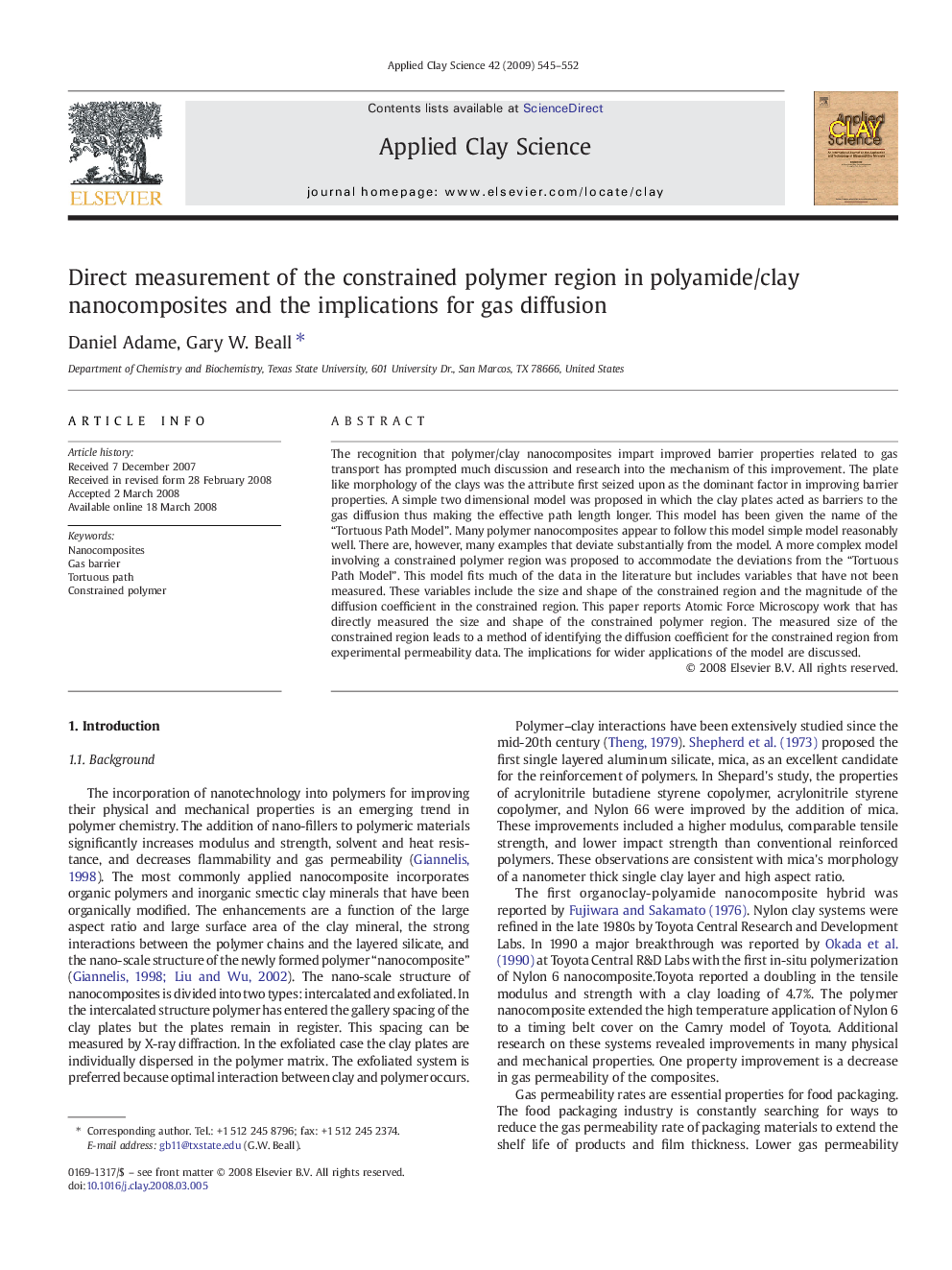| کد مقاله | کد نشریه | سال انتشار | مقاله انگلیسی | نسخه تمام متن |
|---|---|---|---|---|
| 1696416 | 1519124 | 2009 | 8 صفحه PDF | دانلود رایگان |

The recognition that polymer/clay nanocomposites impart improved barrier properties related to gas transport has prompted much discussion and research into the mechanism of this improvement. The plate like morphology of the clays was the attribute first seized upon as the dominant factor in improving barrier properties. A simple two dimensional model was proposed in which the clay plates acted as barriers to the gas diffusion thus making the effective path length longer. This model has been given the name of the “Tortuous Path Model”. Many polymer nanocomposites appear to follow this model simple model reasonably well. There are, however, many examples that deviate substantially from the model. A more complex model involving a constrained polymer region was proposed to accommodate the deviations from the “Tortuous Path Model”. This model fits much of the data in the literature but includes variables that have not been measured. These variables include the size and shape of the constrained region and the magnitude of the diffusion coefficient in the constrained region. This paper reports Atomic Force Microscopy work that has directly measured the size and shape of the constrained polymer region. The measured size of the constrained region leads to a method of identifying the diffusion coefficient for the constrained region from experimental permeability data. The implications for wider applications of the model are discussed.
Journal: Applied Clay Science - Volume 42, Issues 3–4, January 2009, Pages 545–552